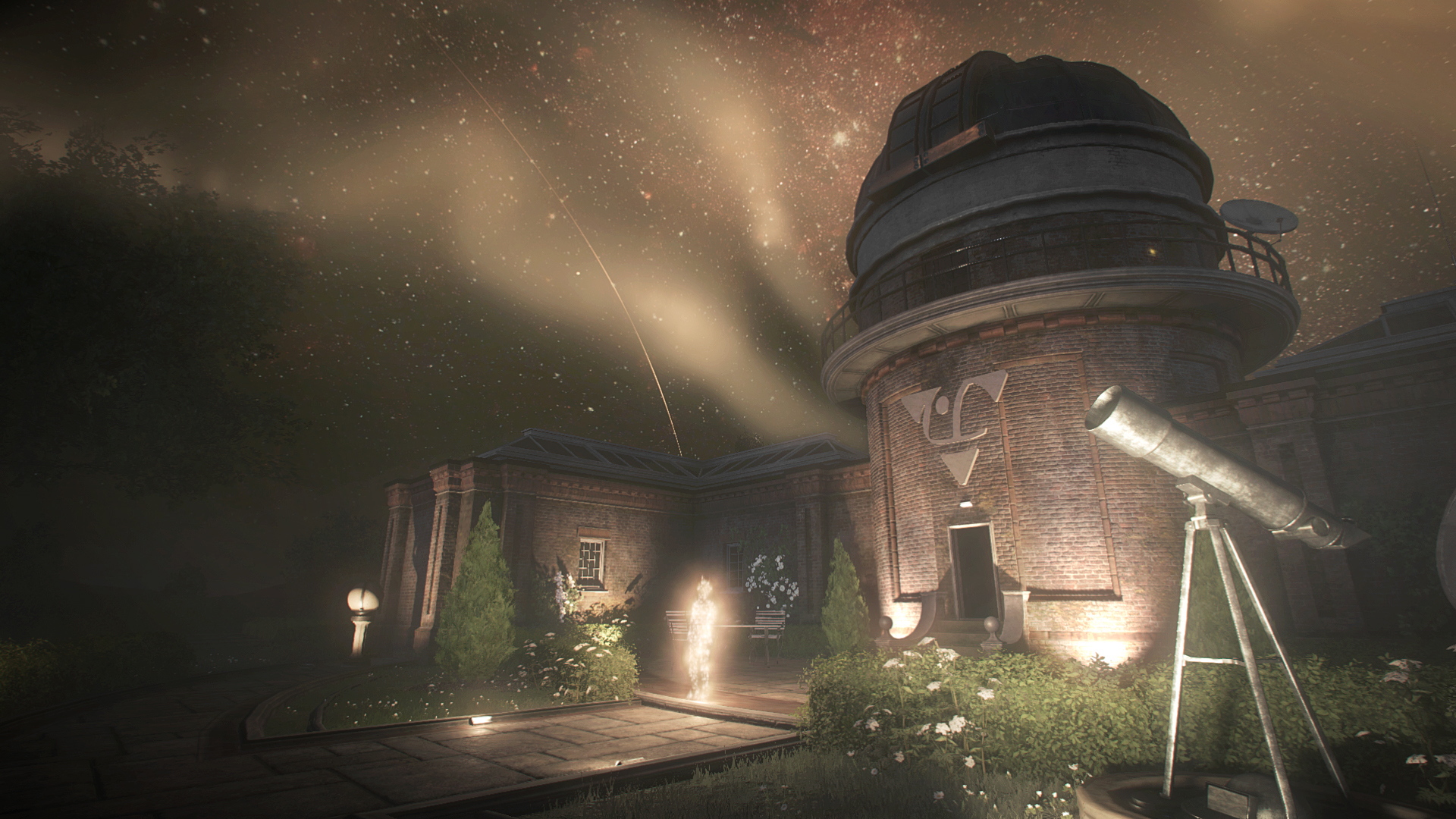The Talos Principle is a puzzle game similar to Portal wherein you have to solve rooms of increasingly challenging logic puzzles. What differentiates The Talos Principle is the layer of existential themes about the nature of reality and what it means to be human. Didn't expect that, did you?
Gameplay wise The Talos Principle is quite simple, small rooms are cordoned off each with a challenge to solve within. Your reward is a puzzle piece that when combined with other pieces allow you to access other areas of the game with even more puzzle rooms. The overall objective becomes clearer as you progress but it does start with being an agent of God. Where it goes from there is quite mind blowing and ultimately up to you to discover. Every once in a while as you progress through the game you'll hear the voice of God as he encourages you and seeks to commune with you once you've satisfied the specific number of puzzle piece requirements (don't ask). He only asks one thing, do not enter the mysterious tower in the center of the world. The only other piece of the narrative is relayed through computer terminals in each new area, each one has notes you can read and eventually an unknown entity begins to speak with you through these terminals allowing you to respond as you see fit.
The Talos Principle is a weird game. On the one hand it's a fairly straightforward and enjoyable enough puzzle platformer akin to Portal. On the other it's this interaction with a few different figures, all of whom have very different views on the world. It's these interactions, be it with God or the voice in the machine, that elevate this game beyond a simple puzzle game. They are genuinely brilliant interactions that force you to question things about your life, it psychoanalyzes you and argues with you on questions such as faith, purpose, humanity, human nature, etc. These are lofty and impossible questions and that's what makes those interactions so fun.
The Talos Principle is an exceedingly clever puzzle game that is plenty fun on it's own but the philosophical questions it poses push it over the edge. The way it forces you to meditate on some of the harder questions about the reality of our existence and human nature are very lofty for a video game. The two things don't meld well at all and really the puzzle aspects feel like something to do while the game poses these big questions. The Talos Principle never melds together it's to diametrically opposed pieces and feels like two distinct game, but it's still two very entertaining pieces regardless of whether they fit together or not.
(4 out of 5)



